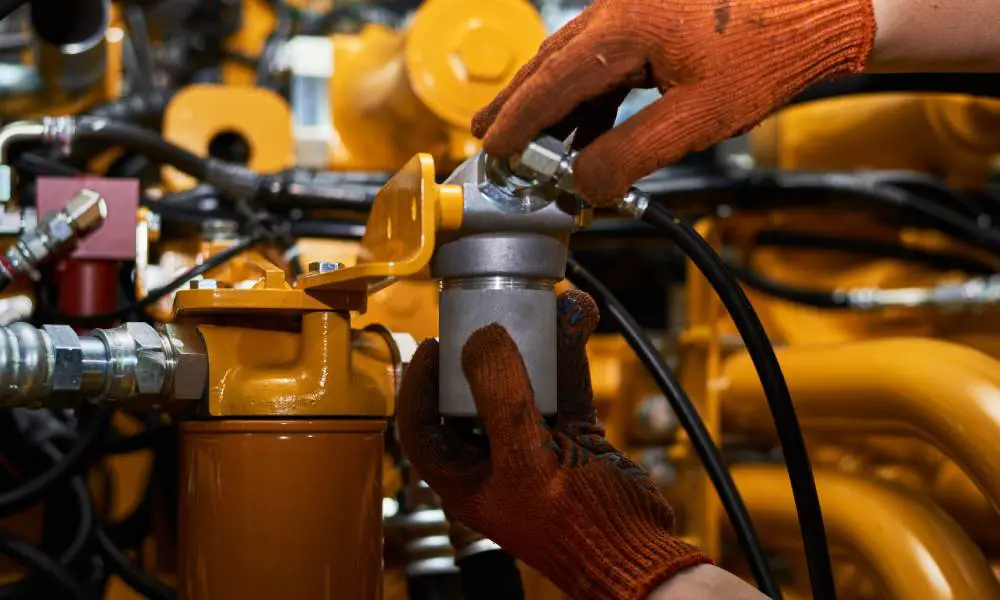

Hydraulic systems are as powerful as they are complex. With so many moving parts and intricate engineering, these systems encounter operational issues from time to time.
Here are the top problems that occur with hydraulic systems. By learning them, you can prepare to service your equipment properly and potentially prevent issues from occurring in the first place.
Excessive heat reduces the viscosity of hydraulic fluid, leading to inefficiencies and potential damage to components. Causes of overheating include inadequate cooling systems, excessive workloads, and improper fluid levels. To combat overheating, ensure an efficient cooling process and adhere strictly to operational guidelines.
Leaks in hydraulic systems are perhaps the most common and troublesome issue. They can lead to decreased system efficiency, environmental hazards, and costly cleanup operations. Common culprits for leaks include worn seals, cracked hoses, and improper fittings. Additionally, many types of hydraulic control valves can be prone to leaks, making routine checks of these devices essential for maintenance.
Dirt, water, and air can infiltrate hydraulic systems, causing severe damage. Contamination often results in increased wear, erratic operations, and potential system failures. The introduction of contamination occurs due to poor sealing, maintenance errors, or external environmental factors. Preventative measures include using high-quality filters, routine fluid analyses, and maintaining a clean operational environment.
Pressure loss within hydraulic systems compromises the system’s ability to function effectively. Causes include leaks, blockages, or severe wear in pumps and valves. Identifying pressure loss requires careful monitoring of the system’s performance and conducting regular maintenance checks.
All components in hydraulic systems are subject to wear and tear over time. Bearings, seals, and pumps are particularly susceptible to failure as they undergo stress and high pressures. Regular inspections, timely replacements, and use of quality parts mitigate the risk of component failure.
Finally, inconsistent performance is a general yet common issue with many possible causes, including improper fluid levels, air entrainment, or maladjusted control mechanisms. Corrective actions include proper system calibration, air purging procedures, and meticulous monitoring of fluid levels.
If you deal with hydraulic systems, you must understand the top problems that occur. Regular maintenance, vigilant monitoring, and timely interventions prevent problems from escalating into major challenges, ensuring system efficiency and consistency in operations.
Optimize your food processing facility by better understanding the critical ways gases can impact electrical…
Discover the best safety practices for restaurants, ranging from fire prevention to hygiene standards. Take…
Radon levels rise at higher elevations due to low air pressure and sealed homes. Learn…
There’s nothing worse than lighting a new candle and watching it sputter out, tunnel, or…
Discover how woven metal fabric transforms restaurant design with its versatility, from feature walls to…
Upgrading your workspace? Get inspired by design ideas for materials, lighting, and amenities, and tips…